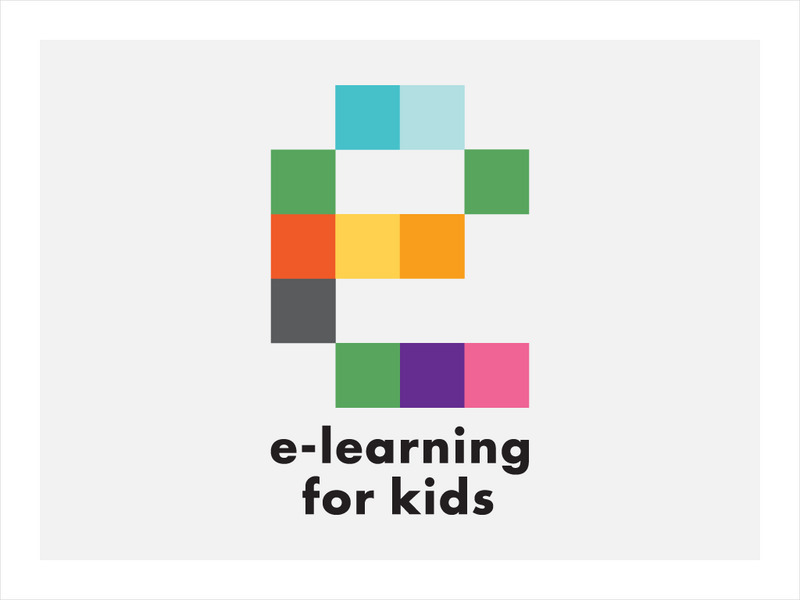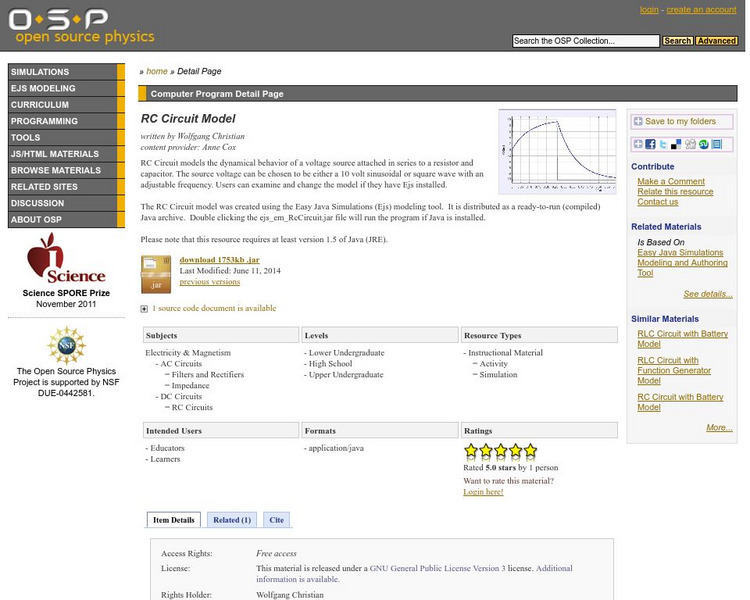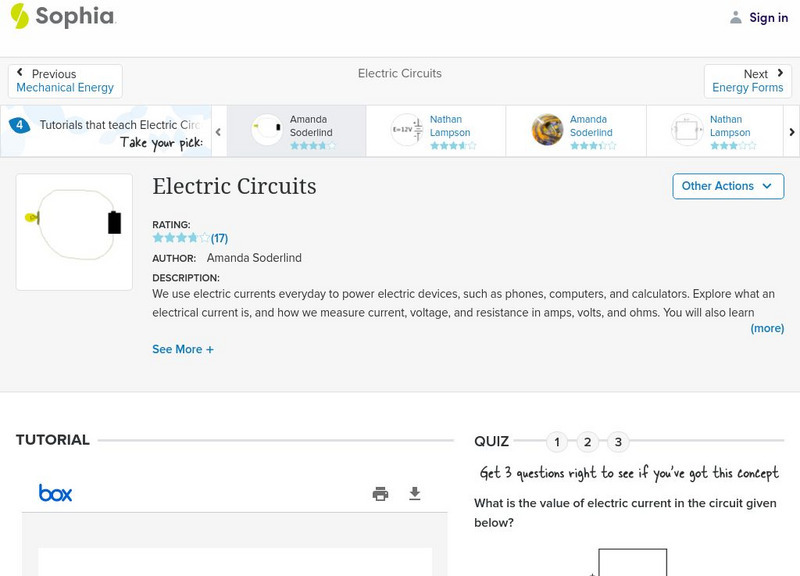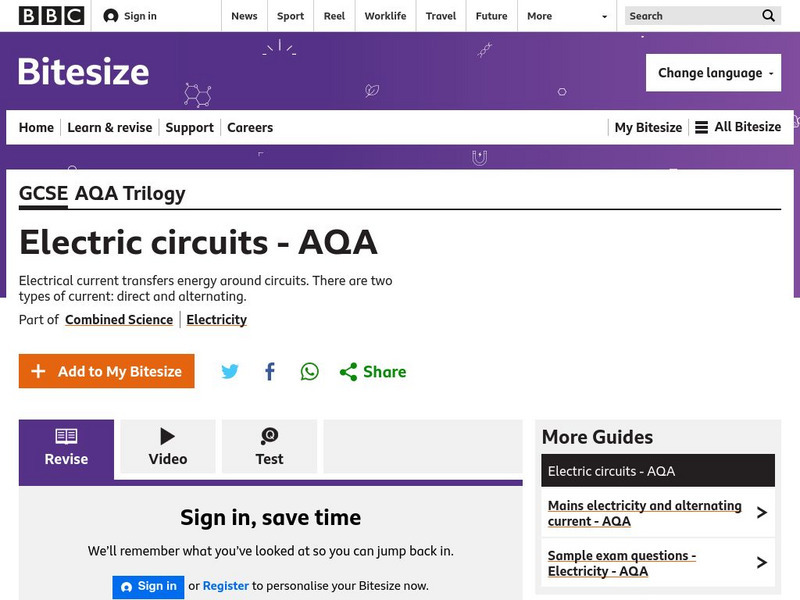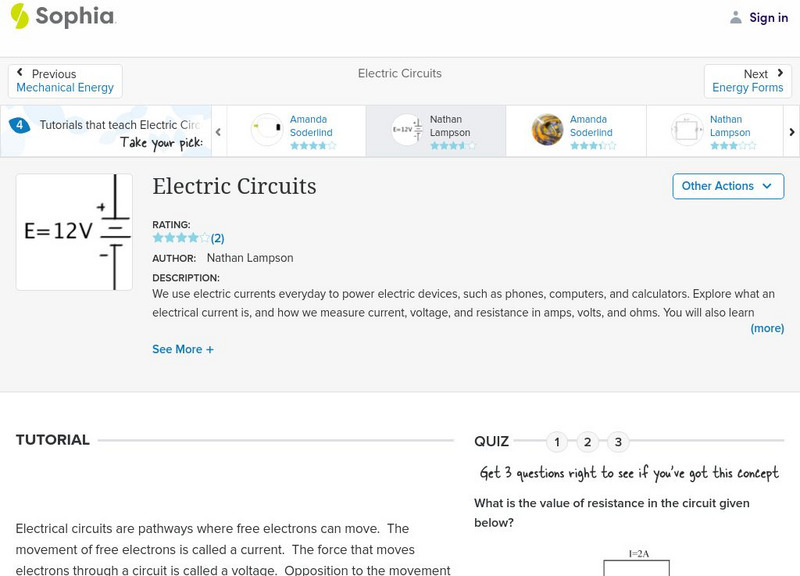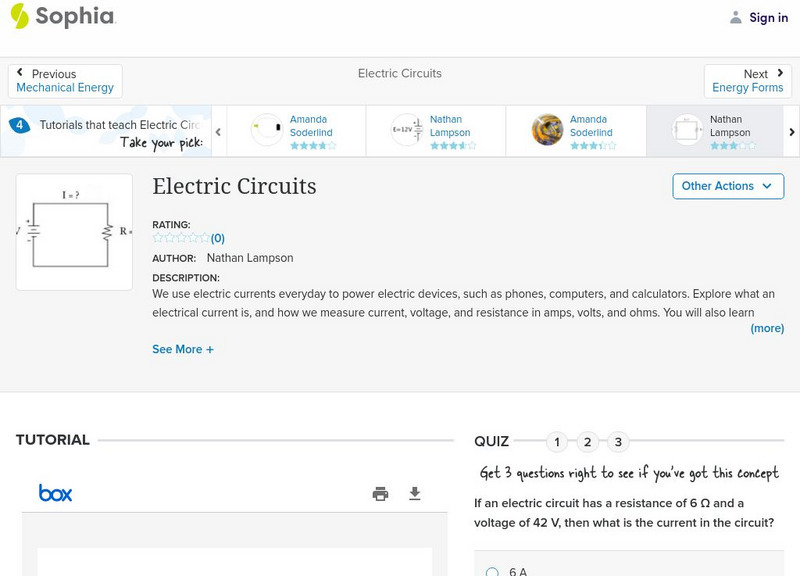Hi, what do you want to do?
Concord Consortium
Concord Consortium: Stem Resources: Electric Current
In this interactive, students can explore how current, voltage, and resistance are related in a model showing the flow of electrons in an electric circuit. They will learn about Ohm's law and how other forms of energy can be made from...
E-learning for Kids
E Learning for Kids: Science: Arctic Ocean: What Are Conductors and Insulators?
Visit Vlad and learn about the properties of conductors and insulators, and what materials are used for them.
Science Museum, London
Science Museum: Robot Bugs
Build a robot and watch how it moves. Activity is designed to help students learn how electrical circuits and switches control how things move.
Science Education Resource Center at Carleton College
Serc: Learning the Science Behind Electricity
Following a PowerPoint lecture, students will participate in a laboratory investigation where they dissect a disposable camera.
American Association of Physics Teachers
Com Padre Digital Library: Open Source Physics: Rc Circuit Model
An electrical circuit simulation modeling the behavior of a voltage source attached in a series to a resistor and capacitor.
Open Curriculum
Open Curriculum: Electricity and Circuits
This article helps students understand the concepts of electricity and circuits.
National High Magnetic Field Laboratory
Magnet Academy: Current Flow
This tutorial illustrates how the flow of water through a system of pipes can be used to understand the flow of current through an electric circuit.
National High Magnetic Field Laboratory
Magnet Academy: Transformers
Use this interactive, simple transformer to make a complete circuit via induction using two separate coils with iron cores inside.
National High Magnetic Field Laboratory
Magnet Academy: Wheatstone Bridge 1843
Read about the device used for measuring resistance in a circuit which was discovered in 1843, but had been invented a decade earlier. The inventor's name was not Wheatstone.
Sophia Learning
Sophia: Electric Circuits: Lesson 3
This lesson will explain how to calculate voltage, current, and resistance in simple electric circuits. It is 3 of 4 in the series titled "Electric Circuits."
eSchool Today
E School Today: Electricity
Explore current electricity and different types of electric circuits.
BBC
Bbc: Gcse Bitesize: Electric Circuits Aqa
This lesson focuses on Electrical circuits including standard symbols for electrical components, a list of components and what they do, a discussion of various types of resistors, and alternating current and direct current. Links to a...
Concord Consortium
Mobile Inquiry Technology: Parallel Versus Series Circuits
For this lesson, students actively investigate the differences between parallel and series circuits and how the brightness of bulbs is affected.
Project Britain
Primary Homework Help: Electricity Questions
Brush up on electricity facts before taking this interactive quiz. Students can get immediate feedback by checking the answers after each question.
CK-12 Foundation
Ck 12: Physical Science: Series and Parallel Circuits
[Free Registration/Login may be required to access all resource tools.] What series and parallel circuits are and how they differ.
CK-12 Foundation
Ck 12: Physical Science: Electric Circuits
[Free Registration/Login may be required to access all resource tools.] Explains what an electric circuit is, its different parts, and how to represent it using a circuit diagram.
CK-12 Foundation
Ck 12: Physics Simulation: Flashlight
[Free Registration/Login Required] Learn about electric circuits, the flow of current, electrical resistance, and electrical power dissipation by exploring the operation of a flashlight using this interactive simulation. A PDF worksheet...
American Geosciences Institute
American Geosciences Institute: Earth Science Week: Mineral Electrical Conductivity
The purpose of this activity is to test the conductivity of various minerals with a simple electrical circuit and draw conclusions about which ones would be used in electronics.
CK-12 Foundation
Ck 12: Physics Simulation: Flashing Neon Light
[Free Registration/Login Required] Learn about how capacitors are used in circuits to create transient events such as the flash of a light bulb using this interactive simulation. A PDF worksheet and a video tutorial are also available....
CK-12 Foundation
Ck 12: Physics Simulation: Marquee Lights
[Free Registration/Login Required] Learn about different ways you can wire an electric circuit, and how the brightness of the lights depends on how they are configured using this interactive simulation. A PDF worksheet and a video...
Hunkins Experiments
Hunkin's Experiments: Electric Shocks!!
Hunkin's Experiments is a group of simple cartoon illustrations of scientific principles. Some would work well in the classroom, but others have little value beyond entertaining students. All of the projects are easy to do. These...
Science and Mathematics Initiative for Learning Enhancement (SMILE)
Smile: Ohm's Law
For the teacher planning a lesson or for the student preparing for a project or presentation. This page describes a series of simple activities related to the voltage-current-resistance relationship.
Sophia Learning
Sophia: Electric Circuits: Lesson 2
This lesson will explain how to calculate voltage, current, and resistance in simple electric circuits. It is 2 of 4 in the series titled "Electric Circuits."
Sophia Learning
Sophia: Electric Circuits: Lesson 4
This lesson will explain how to calculate voltage, current, and resistance in simple electric circuits. It is 4 of 4 in the series titled "Electric Circuits."






